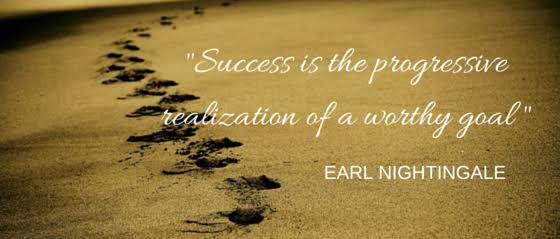


In simpler terms, success is the achievement of something that you intend. For some people success means achieving whatever they dream. For many it is the name, fame, ego, power, social acceptance and money. But while there are certain stereotypes about what it means to be a success, all of these are moving targets that we never quite seem to hit. Someone else always has more money, a better car, a bigger house. As a result, too many of us feel that we are not successful enough; even if we have more that we could ever need or use. Our society creates these feelings because, at heart, inadequacy drives capitalism. Businesses need us to feel like we haven’t achieved enough so that we will strive to buy more. When we don’t feel successful, we feel compelled to take actions that will help us to feel more successful, and many businesses use that feeling to convince us that buying things is the way to achieve feelings of success. The problem, of course, is that the cycle never ends. There is always something else to want and strive for. To be successful in life, we have to satisfy certain key aspects. Firstly, knowing your limits is the most important among them. Limits are the boundaries in your life which you could not overcome. For instance, if you are a blind person, you cannot drive a car. But on the other hand there are so called obstacles in our lives. Many of us think that they mean the same, which is not. Obstacles could be overcome with commitment. In practice limits are few whereas obstacles are many. What we have to do is, identify our limits, differentiate them with obstacles and start out journey towards success.
Sixty-five years ago, Edmund Hillary and Tenzing Norgay literally went where no other human had been when they became the first people to reach the peak of Mount Everest. Can you imagine what they must have felt? Pride, accomplishment, intense fulfilment. But it was short-lived. They were able to withstand the air at that altitude for only 15 minutes before beginning their descent. So, their success wasn’t really in reaching the top but for the it started long back when they began their ascend.
One does not become successful by meeting an arbitrary standard. Consider, for example, a man who believes that earning $10,000,000 will make him a financial success. Does that mean that at $9,999,999 he is unsuccessful? If he then finds $1 in between his couch cushions, what has really changed that made him a success once he has that final dollar than when it was lost in the couch and he simply thought he didn’t have it? In other words, the elements that made the man a success were the hard work, the dedication, and the skills he put into earning his money, not the amount of cash on hand. Similarly, we must think of success as the process by which we achieve our goals, not the specific goals themselves. One can be a success in any endeavour, but one becomes a success through developing the habits of success. Imagine a woman who wants to be a great artist. She paints day and night, developing her skills and undertaking and amazing amount of work. She fills galleries with her paintings, but one day an art critic praises one of them and suddenly their value skyrockets. Did the critic’s validation transform the artist into a success, or was her success in the journey that she undertook in creating the work that others would eventually value?
Ultimately, the only person who can define success for us is ourselves. We must decide what it means to be a success.